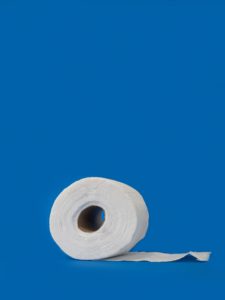In recent blogs, readers learned all about the causes and complications of chronic constipation when left untreated. Certainly, the doctors at Gastroenterology Consultants of Central Florida have seen plenty of people with this issue. Today, the goal is to inform readers on the ways our specialists go about treating chronic constipation.
Diagnosing chronic constipation:
 Treating chronic constipation, may take time. Sometimes, the root issue may not be found immediately. This may lead to a journey of discovering the cause of the chronic constipation.
Treating chronic constipation, may take time. Sometimes, the root issue may not be found immediately. This may lead to a journey of discovering the cause of the chronic constipation.
It can prove to be difficult in certain cases. The patient must be honest about their diet and their activity level which is hard to do for some. Once the basic causes have been ruled out, the doctors will have to consider medications and underlying medical issues.
In addition to a general physical examination, a digital rectal exam may be necessary. Doctors used the following test and procedures to help diagnose chronic constipation:
- blood tests
- an X-ray
- sigmoidoscopy
- colonoscopy
- anorectal manometry
- balloon expulsion test
- colonic transit study
- defecography
- MRI defecography
Tests used while diagnosing chronic constipation:
Blood tests will indicate systemic conditions such as hypothyroidism or high calcium levels. An X-ray may help the doctor determine whether or not the intestines are blocked. Additionally, an x-ray will show if there is stool present throughout the colon.
A sigmoidoscopy is an examination of the rectum and lower colon, which is called a sigmoid. During the sigmoidoscopy, the doctor inserts a lighted, flexible tube into the anus. It examines the rectum and the lower portion of the colon.
A colonoscopy is an examination of the rectum and entire colon. This procedure aids in the diagnosis process. It allows the doctor to examine the entire colon with a flexible tube equipped with a camera.
In an anorectal monometry, a doctor inserts a narrow, flexible tub into the anus and rectum. It then inflates a small balloon at the tip of the tube. The device is then pulled back through the sphincter muscle.
This procedure also allows your doctor to measure the coordination of the muscles used when passing a bowel movement.
A balloon expulsion test may be used. This is an evaluation of the anal sphincter muscle speed. It is often used along with the anorectal manometry.
The balloon expulsion test measures the amount of time it takes for a person to push out a balloon that has been filled with water and placed inside of the rectum.
A colonic transit study may be extremely valuable to your Orlando gastro doctor. During this procedure, a person swallows a capsule which contains either a radiopaque marker or a wireless recording device. The progress of the capsule through the colon is recorded over a day or two. It is visible on x-rays.
Make an appointment now:
 Speak with an Orlando gastro doctor. At Gastroenterology Consultants of Central Florida, the doctors are willing to spend time discussing every gastroenterology issue patients experience to provide thorough and complete care. Make an appointment today for an in-person or telehealth appointment.
Speak with an Orlando gastro doctor. At Gastroenterology Consultants of Central Florida, the doctors are willing to spend time discussing every gastroenterology issue patients experience to provide thorough and complete care. Make an appointment today for an in-person or telehealth appointment.
Staff Writer
